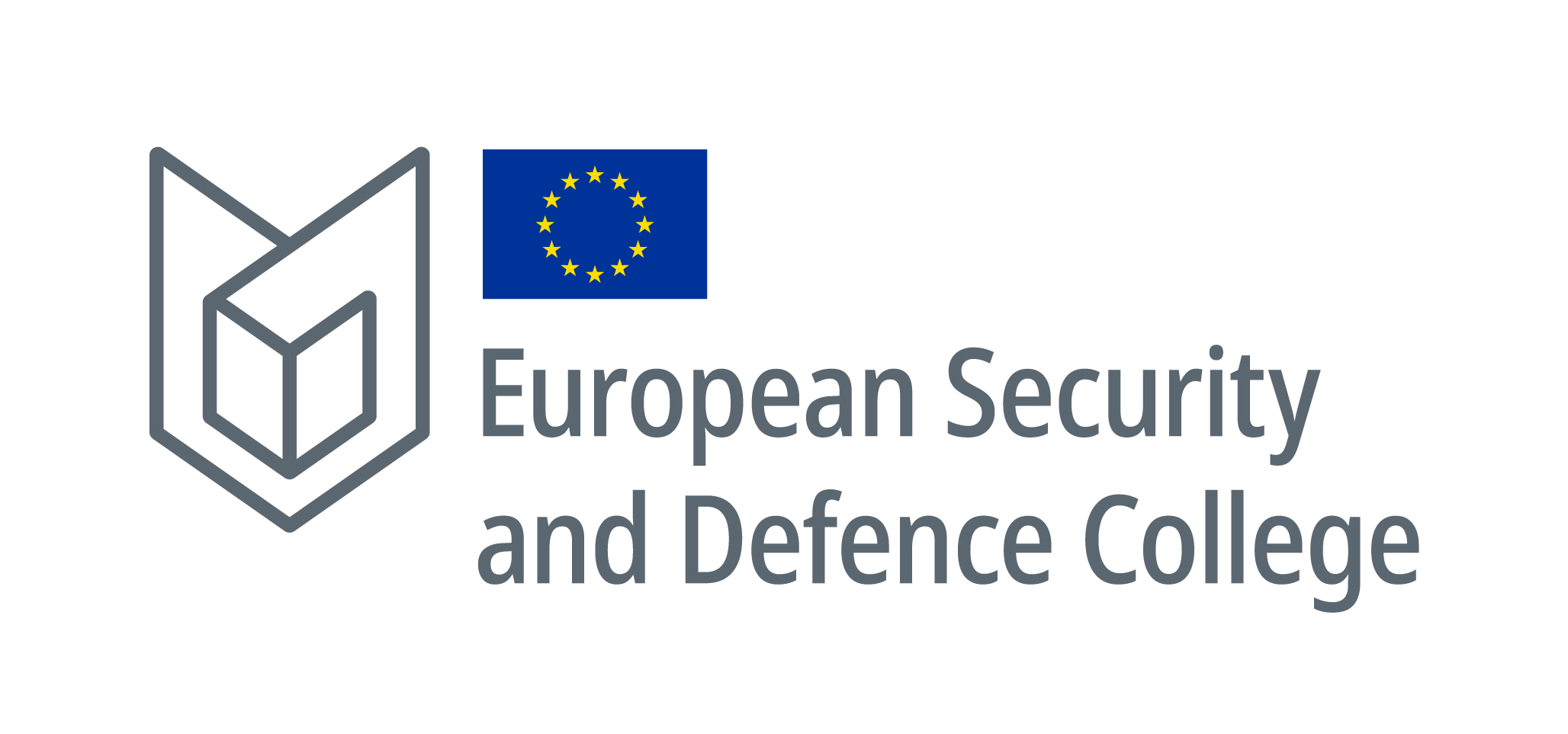The ESDC EAB Security Sector Reform and Disarmament, Demobilisation and Reintegration Configuration
History and membership
The ESDC EAB SSR was established in 2010 in response to the request to enhance the Common Security and Defence (CSDP) Security Sector Reform (SSR) expertise through a training mechanism within the EU and aims to optimise the coordination and coherence of EU SSR training. In 2023, the SSR board expanded to include the disarmament, demobilisation and reintegration (DDR) of former combatants, making it the ESDC executive academic board on SSR and DDR (EAB SSR/DDR). The board’s main mission is to support the coordination, coherence and quality of EU SSR and DDR education and training provided by ESDC training institutions.
Training institutions involved in SSR and DDR training that are full members of the SSR/DDR board include the Swedish Folke Bernadotte Academy (SSR and DDR training); the Italian Post Conflict Operations Study Centre Torino (SSR training); the Romanian National College of Home Affairs (CNAI /SSR training); the Spanish Centre for Advanced National Defence Studies (CESEDEN) (SSR training); the Austrian Ministry of Defence, Implementation Office for Arms Control and International Stabilisation Measures (SSR training) in cooperation with the Austrian Centre for Peace (ACP); the International Security Sector Advisory Team (ISSAT) of the Geneva Centre for Security Sector Governance (DCAF), the Crisis Management Center Finland (CMC), the Bonn International Centre for Conflict studies (BICC / DDR training) and the Georgian Defence Institution Building School, (DIBS / SSR training), as an associated member.
Functions
The ESDC SSR/DDR Board in close coordination with the ESDC Secretariat facilitates the practical implementation of ESDC SSR and DDR Courses offered by SSR/DDR Board members training institutions on their request.
The EAB SSR and DDR as appointed Civilian Coordinator for Training on Security Sector Reform (CCT-SSR) support the EU Civilian Training Group and fulfil its responsibilities as CCT for SSR. The EAB SSR and DDR jointly explore how the board can support and facilitate the implementation of the findings aimed at improving the training activities offered to EU and MS personnel. This process is managed in close cooperation with the ESDC secretariat and CPCC.
In June 2021, the ESDC EAB SSR as consortium was appointed Discipline Leader (DL) for the discipline “Military Support to SSR and DDR” (EU DL mil support to SSR and DDR). A Training Requirements Analysis (TRA) of EU Common Security and Defence Policy (CSDP) military missions/operations and personnel engaged in SSR and DDR activities was conducted and agreed by the EU Military Committee on 30 May 2023. As EU DL Military Support to SSR and DDR the Board will support the EUMTG in identifying relevant stakeholder, expert, or existing training programme capability where applicable. This will enable regular inclusion in workshops and meetings of CSDP experts, officials and representatives.
Thematic cooperation with the EEAS
The EAB SSR and DDR cooperates closely with the EU Task force on SSR, with representatives from the relevant EEAS and Commission services, as well as with the ‘European Union Security Sector Governance Facility’, through its courses, meetings and seminar series. The EAB seminar series began in 2014 and identified the need for a single overarching EU SSR concept, linking the Commission’s SSR activities with CSDP. This lay the ground for the ‘EU-wide strategic framework in support of Security Sector Reform’ of 5 July 2016, followed by the ‘Council conclusions on an EU-wide strategic framework to support Security Sector Reform (SSR)’ from 14 November 2016. The seminars series has continued to support the process of implementation of the EU SSR strategic framework and aims to create synergies between policy and practice through training. Each academic year, two to three expert seminars take place in Brussels and focus on various aspects of the implementation of EU-wide SSR.
EU-wide SSR training, including Member States, EEAS, Commission, CSDP missions and EU delegations, supports the implementation of the EU-wide framework on SSR as part of the implementation of the EU Strategic Compass, the Civilian Compact and the integrated approach to conflict and crisis. Special attention is given to sound analysis of the overall picture and political context in order to support local ownership through good governance and accountability. The development of methods for effective SSR-implementation through mentoring and advising, leadership and communication skills, gender and human rights mainstreaming as well as risk management, monitoring and evaluation, are emphasised during the training. The ESDC offers basic, core, and in-mission courses on SSR. Representatives of the EEAS, the European Commission, other EU institutions, other organisations and non-EU countries may be invited to send representatives with SSR and/or DDR experience and expertise to attend the SSR/DDR board meetings and other related events. Where appropriate, experts from other training institutions specialised in SSR and DDR training may also be invited to share their lessons learned and expertise in SSR and DDR training.
Integration of DDR
With the integration of DDR training in the Configuration 2023, the EAB SSR and DDR will furthermore explore the interconnected nature of SSR and DDR and possible synergies. In Dec 2021 the revised Joint Communication to the European Parliament and the Council - an EU strategic approach in support of Disarmament, Demobilisation, and Reintegration of former combatants were presented by the High Representative and the European Commission. This communication outlines a new EU strategic approach to support DDR processes and reflects the ambition of a stronger Europe in the world as a global peace actor. This revised policy strengthens the EU's capacity to contribute to the prevention and sustainable resolution of armed conflicts that destabilise entire regions, affect the security of the EU and its citizens, and undermine development gains and resilience.
EAB SSR and DDR configuration

Kurt Meissner
Configuration Chair
Kurt Meissner is the Head of the Security and Defence Sector Reform Section in the Austrian Armed Forces Implementation Office for Arms Control and International Stabilization Measures. Before assuming this position, he was Chief Instructor in the Austrian Armed Forces International Centre (AUTINT) in the international Course Section. He attended courses, conferences and seminars in the fields of Security Sector Reform (SSR), Disarmament, Demobilisation and Reintegration (DDR), Building Integrity and Leadership Training (BI), Small Arms and Light Weapons (SALW) and conventional Arms Control. Kurt Meissner has gained experience in the field of SSG/R training as moderator, and trainer on SSG/R courses and seminars and is Course Director of the ESDC Core Course on SSR. As SSR Subject Matter Expert he has represented the Austrian Ministry of Defence on international conferences and meetings. Kurt Meissner was selected as the Austrian representative to the EAB on SSR 2010. In 2020 Kurt Meissner was appointed as Chairperson in the Executive Academic Board on SSR Training, since 2023 he is Chair of the EAB SSR and DDR Training in the European Security and Defence College (ESDC). As staff officer and UN Military Observer Kurt Meissner served in international UN peacekeeping missions in the Middle East, Cambodia and Rwanda.

Enver Ferhatovic
Configuration Support
Enver Ferhatovic is a German seconded national expert from the Zentrum für Internationale Friedenseinsätze (ZIF). At the European Security and Defence College, he coordinates the Security Sector Reform and Disarmament Demobilization and Reintegration Configuration, supports the partnership and research dossiers and manages courses on SSR, DDR, Political Affairs, Intelligence and Mediation, Negotiations and Dialogue. He is a tenured political affairs, peacebuilding, security sector reform and strategic planning expert with extensive CFSP/CSDP professional experience from the EU Advisory Mission to Ukraine (2022), the EU Reginal Capacity Building Mission in the Horn of Africa (2013), the EU Police Mission in Afghanistan (2010-2012), the Office of the EU Special Representative for Sudan (2008-2010) and the Office of the High Representative/EU Special Representative in Bosnia and Herzegovina (2001-2008). As a Senior Researcher for the European Commission’s Horizon 2020 funded research project EUNPACK.eu (2016-2019) consortium of 13 institutes he researched whether the EU may or may not be capable, and why, of successfully advancing its tool box of facilitating the management of conflict in its immediate and extended neighbourhood. He co- authored a chapter of the book ‘EU Crisis Response (2021)’ on the effectiveness of CSDP missions and operations in the extended neighbourhood (Afghanistan, Iraq and Mali) and co- authored a chapter of the pivotal EU security and defence book titled ‘EU Security and Defence Policy in action (2007)’. He holds a Master’s degree in political science and law while his International Relations doctoral research focuses on the effectiveness of EU policing/SSR missions.
